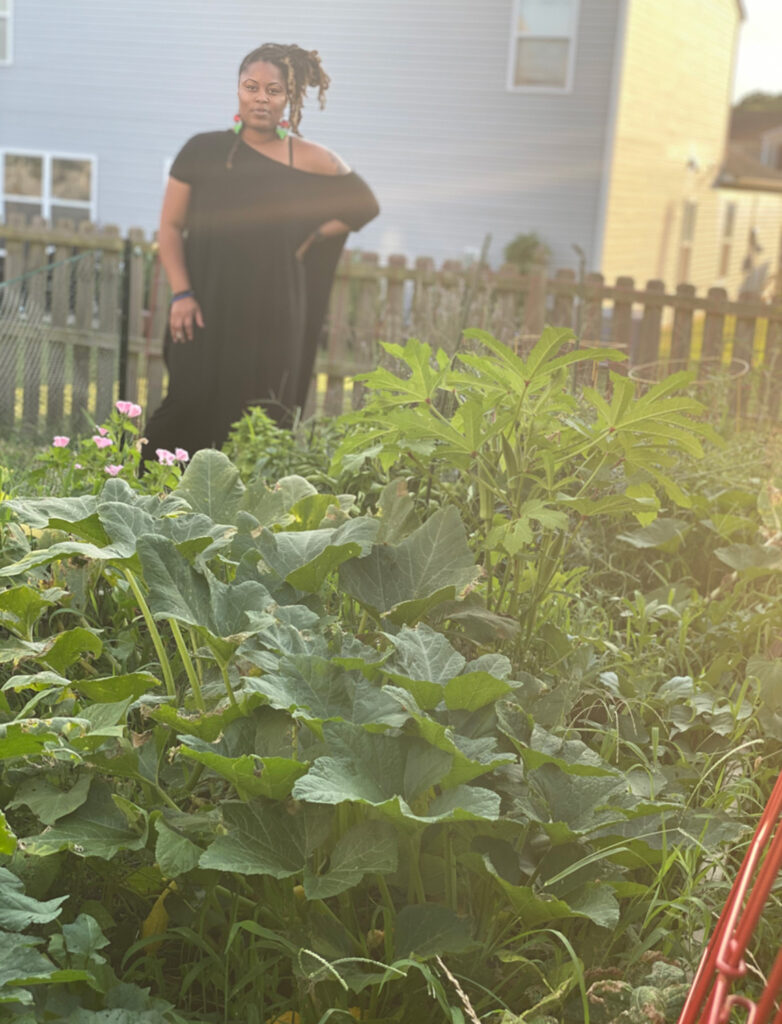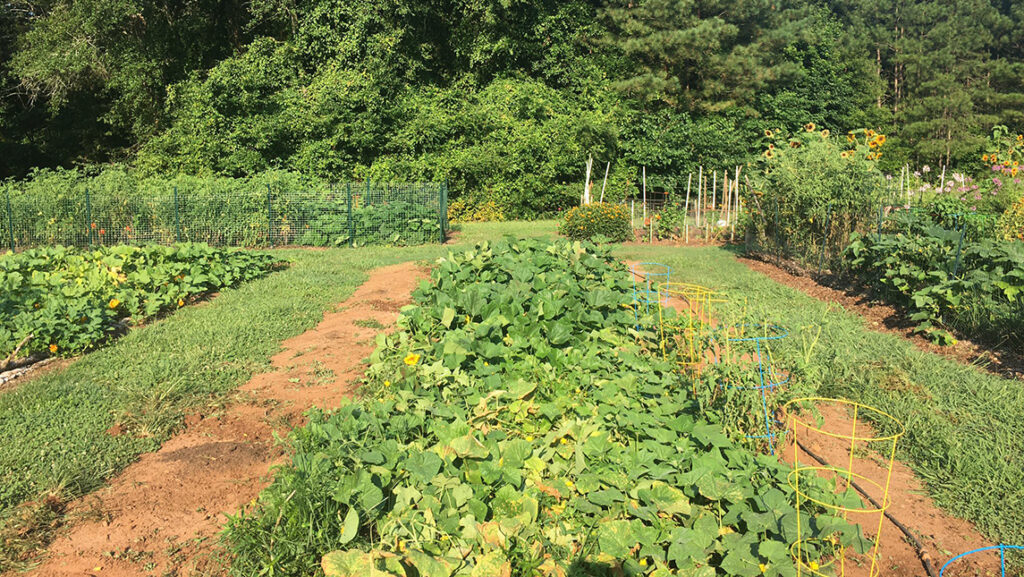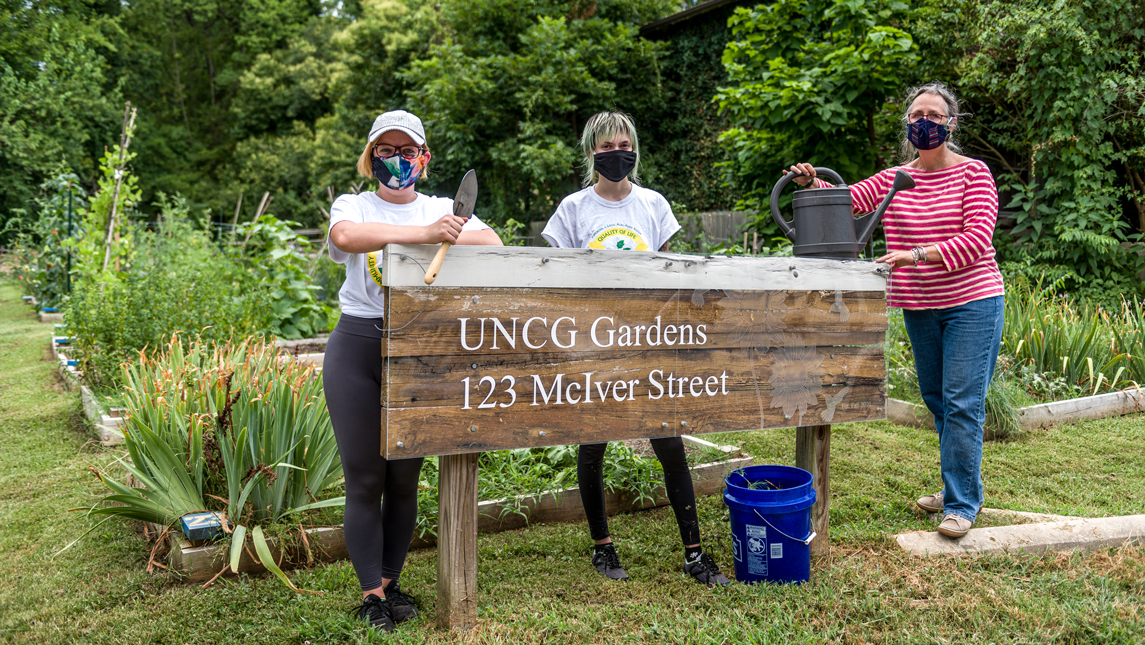
As we continue to face the COVID-19 pandemic, many Spartan students, faculty, and staff have turned to gardening as a way to find solace during difficult times, to reconnect with nature, and to get their hands dirty. Whether it’s a way to address Zoom fatigue and too much screen time, a way to find quiet among today’s heavy headlines, or a desire to connect with the soil and community, gardening has become increasingly popular in these days of face coverings and social distancing.
But one site of Spartans getting their green thumb on has been there all along – UNCG Gardens on McIver Street. Celebrating its 10th year, the fully organic gardens are a community effort among faculty, staff, and students in which participants learn all about site preparation, along with planting, maintaining, and harvesting vegetables.
Anthropology professor Susan Andreatta and her assistants, Margaret Childers ‘19 and Mia Hoskins ‘21, are managing much of the gardens during the pandemic, and the result of their hard work shows. Along with Andreatta, Dr. Corey Johnson from the department of Geography, Environment, and Sustainability and two staff members – Jarrod Pratt from Facilities Operations and Guy Sanders from Housing & Residence Life – work on upkeep of the site. And the gardens even have a resident groundhog named Fred. Fred tends to take the evening shift, and focuses mainly on harvesting.
Andreatta notes that during the pandemic, the gardens are limited to 2 participants at a time and gardeners must maintain social distancing. Plots are $10 each per semester or $20 for the year, and plot occupants are responsible for managing their raised bed.
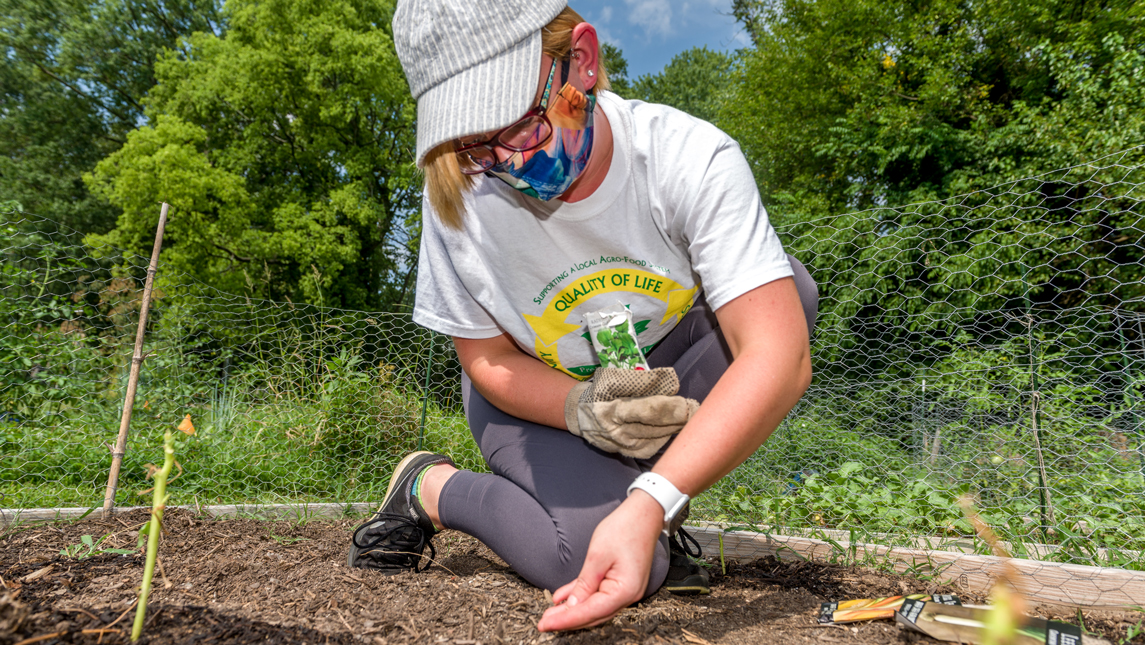
She and her volunteers are a tight-knit team and they have their routine down, usually working in the gardens at least twice a week. Pre-pandemic, the students working at the site could number as many as 20, and they come from all over campus and the world. How many students have worked in the gardens over the years?
“Normally when people come, they have to sign a waiver. And I’ve accumulated well over 2,000 students who have been here for at least an hour,” says Andreatta. “And I can count on two hands now the number of former students who have bought or started farms.”
Working in the gardens gives the students valuable experience and memories, in addition to learning hands-on skills. Pre-pandemic, they also found community and often gathered for potlucks, tea, and conversation.
“This place is kind of like a release,” says Hoskins. “During the pandemic I’ve basically been locked in my house, so just being able to come out here was my only social interaction for a while. That was the bright spot of my week – just being able to come out here and talk to Susan and Margaret.”
Childers says she’s been gardening for a long time. “My parents live on a lot of land, so we’ve always had multiple gardens at our house. Living in the city was a big change, so being back in a garden has really helped me a lot because it’s like home away from home.”
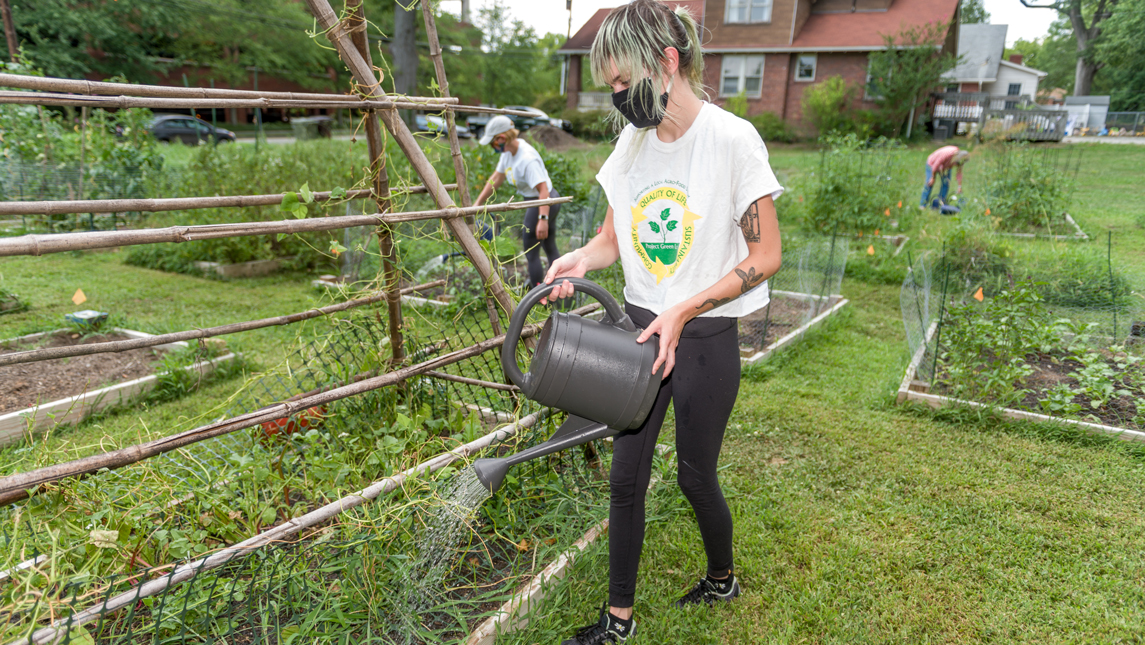
But UNCG Gardens is not just about growing food and learning how to have a green thumb – it’s also a source of food that gets donated to UNCG’s Spartan Open Pantry. Every week or so, the students deliver some of the harvested food to SOP that then gets distributed to those in need.
“Spartan Pantry gives food to UNCG students and staff members and the garden is able to provide us with fresh produce. That’s something that can be difficult for us to get through donations or to keep in stock,” says SOP student director Kellie Thomas. “It’s a way for students who are using the pantry to really supplement their diet with healthy fresh foods from the UNCG Gardens.”
Beyond campus, students, faculty, and staff have spent the summer months tending to their personal and community gardens.
Megan Doldron, a PhD candidate in the Department of Biology, began gardening in 2016 as a hobby. Over the years, gardening has provided an opportunity for her to introduce vegetables to children living in inner-cities who may not have access to fresh produce. She grows sage, thyme, sweet peppers, kale, lettuce, sweet potatoes, and rosa plums, among other fruits, vegetables, and herbs. During the pandemic, gardening has been her “peace.”
“It’s part of my daily meditation. It’s just soothing and takes my mind off of the uncertainty in the world,” she said.
Fellow PhD candidate Austin Gray has become more involved with his family garden this summer.
“This pandemic hit a lot of us hard – me and my wife especially because we were new parents. Our baby boy Milo came into the world in February. For his well being we have practiced social distancing and with that, we have not had much personal interaction with family and friends. Having the garden allowed us to go out as a family and tend to the garden and also just enjoy nature and the beauty of it. I have been working on finishing my dissertation and also looking for job prospects – each is a mentally challenging task – so having the garden there to work on was a good stress relief.”
Dr. Nadja Cech, Patricia A. Sullivan Distinguished Professor of Chemistry, serves as garden manager at the Dunleath Community Garden in Greensboro. Dr. Rebecca Muich and Dr. Jonathan Zarecki, fellow UNCG faculty, also garden there.
Cech recently reflected on her pandemic gardening experience in an essay she wrote for UNCG’s chapter of the American Association of University Professors. Below are some excerpts.
“Before corona, gardening was a solitary activity, me and the bumblebees and an occasional garden snake. Digging at the tangled roots of relentless bermuda grass or moving mulch around in my blue steel wheelbarrow was a silent meditation, a contemplative space in which hours could go by unnoticed as I slowed my pulse to the humming of the cicadas.
“Since the coronavirus shutdown, I’ve had a lot of company at Dunleath. Plots that sat fallow for years have been adopted by my neighbors who, like countless people around the globe, are suddenly moved to try growing their own vegetables, often for the first time.
“… All of us live within just a few blocks of each other, but until coronavirus forced us all out into the garden, we had never even met.
“… This shared experience of unsettling change, with all its beauty and tragedy, is without doubt the mother of many revelations. How will they shape our individual and collective futures? When the business sets in again, I hope we will still make time to dig our fingers into cold brown dirt and feel the sun on our faces. Perhaps we’ll find our way together, back to the garden.”
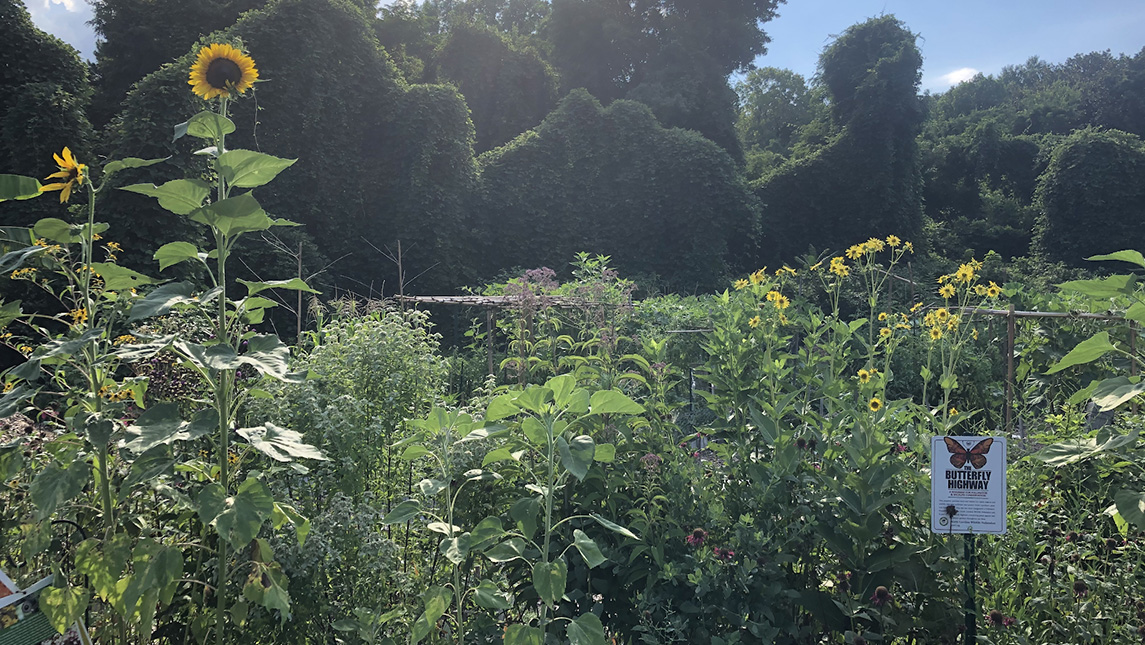
Have you started or resumed gardening during the pandemic?
Share your stories and pictures with the campus community by posting them on Twitter and Instagram. Include @UNCG and #SpartansTogether in your message so we can see and share them!
Story by Matthew Bryant and Alyssa Bedrosian, University Communications
Photography by Martin W. Kane and courtesy of Megan Doldron, Austin Gray, and Nadja Cech
